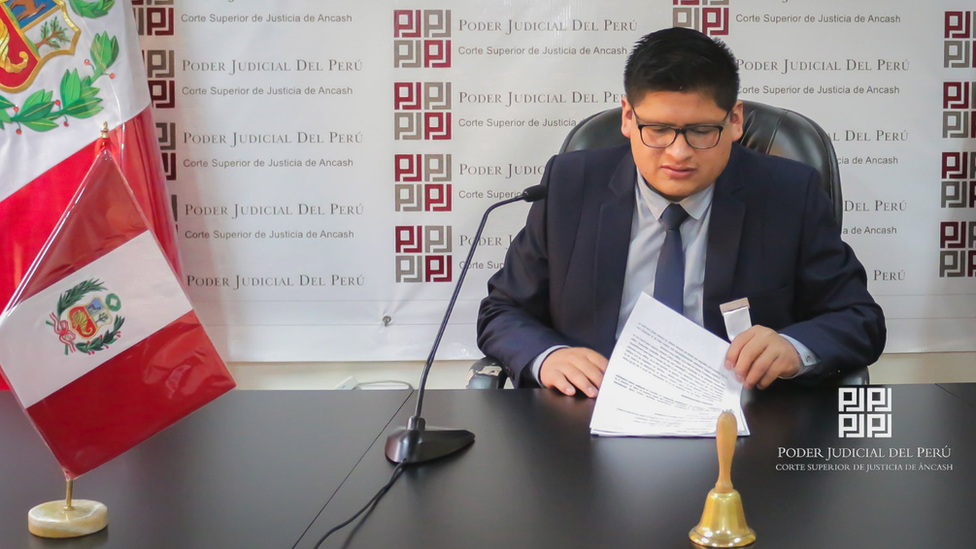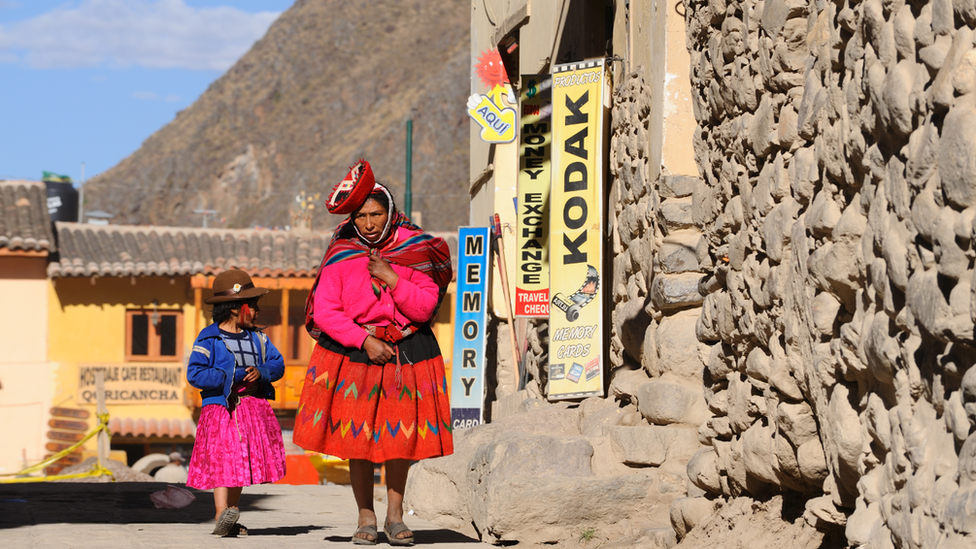Peruvian court rules in language of the Incas
- Published

Dr Granados Guerrero issues his historic ruling
A court in northern Peru has won nationwide praise by issuing the first ruling written entirely in Quechua, the language of the Inca Empire.
Magistrate Oswaldo Ener Granados Guerrero issued the ruling in a dispute between two native speakers of Áncash Quechua, external, one of the dialects of the language still spoken in the Andes Mountains, the Diario Correo newspaper reports.
The dispute concerned a personal injury claim that the two parties agreed to settle in the Court of Peace in the city of Huaraz, a magistrate court that hears minor cases.
"The magistrate, on learning that the plaintiff and defendant were both Quechua-speakers from the area known as Cachipachán in Vicos village, decided to set out all the proceedings in their mother tongue, external," the Áncash Region High Court announced.
'Access to justice'
Dr Granados Guerrero referred parts of his judgement to the Devolved Cultural Directorate in Áncash, where specialists translated them into the local form of Quechua and checked the translation of the other sections, with the aim of "increasing inclusion and access to justice for more Peruvians,", external the Andina news agency says.
Quechua, or Runa Simi, was the language of the mighty Inca Empire, which ruled much of the north-western part of South America until the the Spanish conquest in the 16th century.
It survives in the mountain regions, where its four main varieties are spoken by up to 10 million people from Ecuador in the north to Argentina in the south - and most of them in Peru.
Quechua has had official status in Peru since 1975, but is still largely a spoken rather than written language, heard far more often in rural areas than in the media or courts of law.
You might also like:
Dr Granados Guerrero also made the news last September, when he passed the first sentence in Quechua, external officially recorded in a court in Áncash Region, and announced that the High Court intended to extend Quechua-language services at all judicial levels.
The magistrate's latest and more ambitious achievement has been praised in Peru's mainstream and social media.
"Well done, real cultural diversity," was a common sentiment, while one reader said "this should be applied nationwide, external".
Some social-media users think it is a good start, but insist that there is more to be done."Can they take calls?" in Quechua, external, one commentator wrote on the High Court's Facebook page, noting that one ruling does not mean that Quechua-speakers can get justice in their own language all the time.

The Andes are the stronghold of Quechua culture
Reporting by Martin Morgan
Next story: Conservationists urge caution over caterpillars
Use #NewsfromElsewhere to stay up-to-date with our reports via Twitter, external.